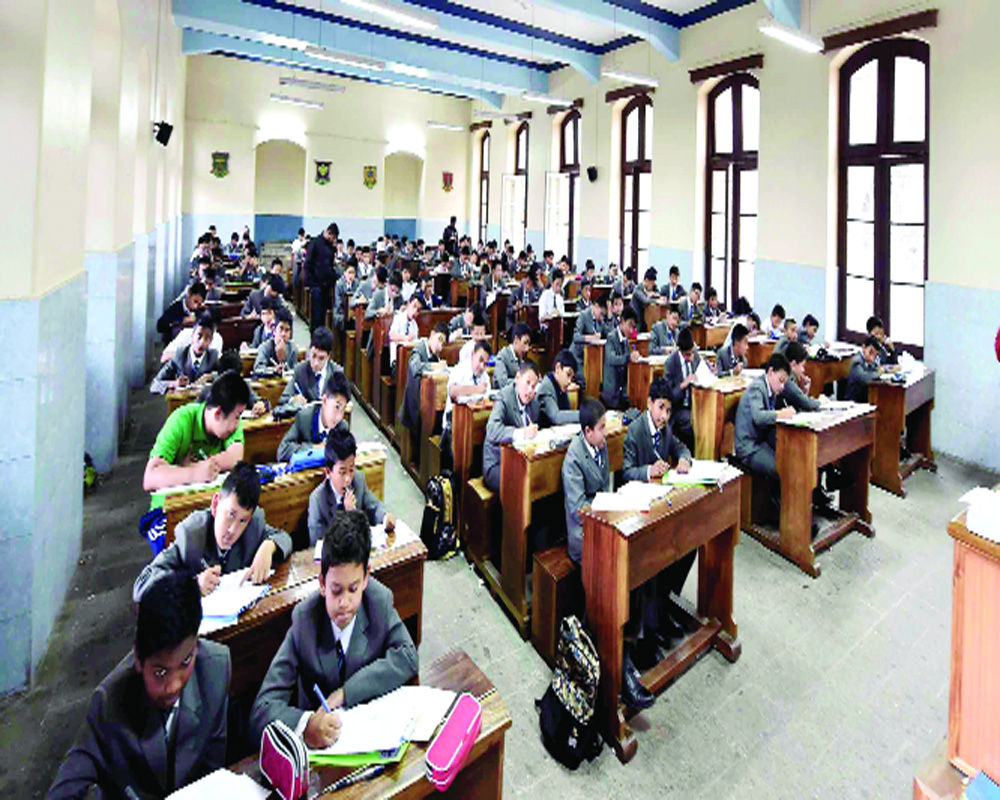In a major change in the primary education system, the Centre on Monday directed for ending the “no-detention policy” for fifth and eighth class, which means that students in these classes who fail their annual exams shall not be promoted to higher grade and hence will need to repeat the same class.
Failed students will h+ave a chance to retake the test within two months, but if they fail again, they will not be promoted. The school will not expel a student until the 8th grade.
Education Secretary Sanjay Kumar said that the Central Government has taken this decision intending to improve the learning outcome among children “The Union Education Ministry has taken a big decision and abolished the ‘No Detention Policy’. Students who fail the annual examination in classes 5 and 8 will be failed,” Sanjay Kumar, Secretary, Department of School Education & Literacy, told The Pioneer.
However, the Government has clarified that no child shall be expelled from any school till the completion of elementary education. According to a gazette notification, after the conduct of regular examination, if a child fails to fulfil the promotion criteria, as notified from time to time, he shall be given additional instruction and opportunity for re-examination within a period of two months from the date of declaration of results.
This new rule applies to over 3,000 Central government-run schools, including Kendriya Vidyalayas, Navodaya Vidyalayas, and Sainik Schools, as per senior education ministry officials. Following the amendment to the Right to Education Act (RTE) in 2019, at least 18 states and Union Territories have already done away with the ‘no-detention policy’ for the two classes.
According to Ministry of Education officials, the notification will be applicable to over 3,000 schools run by the central Government including Kendriya Vidyalayas, Navaodyala Vidyalayas and Sainik Schools. Since school education is a State subject, states can make their decision in this regard. Already 16 states and 2 UTs including Delhi have done away with the no-detention policy for these two classes.
“If the child appearing in the re-examination fails to fulfil the promotion criteria again, he shall be held back in fifth class or eighth class, as the case may be. During the holding back of the child, the class teacher shall guide the child as well as the parents of the child, if necessary, and provide specialised inputs after identifying the learning gaps at various stages of assessment,” the notification said.
“The examination and re-examination shall be competency-based examinations to achieve the holistic development of the child and not be based on memorisation and procedural skills. The Head of the school shall maintain a list of children who are held back and personally monitor the provisions provided for specialised inputs to such children and their progress with respect to the identified learning gaps,” the notification read.
States and UTs that have scrapped the no-detention policy include Assam, Bihar, Gujarat, Himachal Pradesh, Jharkhand, Madhya Pradesh, Meghalaya, Nagaland, Punjab, Rajasthan, Sikkim, Tamil Nadu, Tripura, Uttarakhand, West Bengal, Delhi, Dadra and Nagar Haveli and Jammu and Kashmir.
Asked about the delay in the notification since the amendment was approved in 2019, the official explained that the new National Education Policy (NEP) was announced within six months of the amendment.
“By the time the amendment was made, the NEP was announced within a few months. The department (school education and literacy) decided to wait till the recommendations of the new National Curriculum Framework (NCF) were ready to be able to take a holistic view. The NCF was ready in 2023 and subsequently the Ministry of Education took the decision and made some changes in rules of RTE implementation,” the official added.
The decision announced through an official notification now reverses the 2019 amendment to the Right to Education Act. In July 2018, the Lok Sabha passed a bill to amend the Right to Education (RTE) Act, which aimed to end the ‘no detention policy’ in schools. The amendment introduced regular exams for Classes 5 and 8, with a provision for students who fail to have a re-examination opportunity within two months.
In 2019, the Rajya Sabha approved the Right of Children to Free and Compulsory Education (Amendment) Bill, which sought to remove the ‘no detention policy’ for up to Class 8 to improve learning outcomes. The bill granted state governments the discretion to either continue or abolish the policy, allowing them to hold students back in Classes 5 and 8 if they fail their year-end exams.


























